- Home
- Salman Rushdie
Midnight's Children Page 9
Midnight's Children Read online
Page 9
Mumtaz made the paans for Nadir but did not like the taste herself. She spat streams of nibu-pani. His jets were red and hers were lime. It was the happiest time of her life. And she said afterwards, at the ending of the long silence, “We would have had children in the end; only then it wasn’t right, that’s all.” Mumtaz Aziz loved children all her life.
Meanwhile, Reverend Mother moved sluggishly through the months in the grip of a silence which had become so absolute that even the servants received their instructions in sign language, and once the cook Daoud had been staring at her, trying to understand her somnolently frantic signalling, and as a result had not been looking in the direction of the boiling pot of gravy which fell upon his foot and fried it like a five-toed egg; he opened his mouth to scream but no sound emerged, and after that he became convinced that the old hag had the power of witchery, and became too scared to leave her service. He stayed until his death, hobbling around the courtyard and being attacked by the geese.
They were not easy years. The drought led to rationing, and what with the proliferation of meatless days and riceless days it was hard to feed an extra, hidden mouth. Reverend Mother was forced to dig deep into her pantry, which thickened her rage like heat under a sauce. Hairs began to grow out of the moles on her face. Mumtaz noticed with concern that her mother was swelling, month by month. The unspoken words inside her were blowing her up … Mumtaz had the impression that her mother’s skin was becoming dangerously stretched.
And Doctor Aziz spent his days out of the house, away from the deadening silence, so Mumtaz, who spent her nights underground, saw very little in those days of the father whom she loved; and Emerald kept her promise, telling the Major nothing about the family secret; but conversely, she told her family nothing about her relationship with him, which was fair, she thought; and in the cornfield Mustapha and Hanif and Rashid the rickshaw boy became infected with the listlessness of the times; and finally the house on Cornwallis Road drifted as far as August 9th, 1945, and things changed.
Family history, of course, has its proper dietary laws. One is supposed to swallow and digest only the permitted parts of it, the halal portions of the past, drained of their redness, their blood. Unfortunately, this makes the stories less juicy; so I am about to become the first and only member of my family to flout the laws of halal. Letting no blood escape from the body of the tale, I arrive at the unspeakable part; and, undaunted, press on.
What happened in August 1945? The Rani of Cooch Naheen died, but that’s not what I’m after, although when she went she had become so sheetly-white that it was difficult to see her against the bedclothes; having fulfilled her function by bequeathing my story a silver spittoon, she had the grace to exit quickly … also in 1945, the monsoons did not fail. In the Burmese jungle, Orde Wingate and his Chindits, as well as the army of Subhas Chandra Bose, which was fighting on the Japanese side, were drenched by the returning rains. Satyagraha demonstrators in Jullundur, lying non-violently across railway lines, were soaked to the skin. The cracks in the long-parched earth began to close; there were towels wedged against the doors and windows of the house on Cornwallis Road, and they had to be wrung out and replaced constantly. Mosquitoes sprouted in the pools of water standing by every roadside. And the cellar—Mumtaz’s Taj Mahal—grew damp, until at last she fell ill. For some days she told nobody, but when her eyes became red-rimmed and she began to shake with fever, Nadir, fearing pneumonia, begged her to go to her father for treatment. She spent the next many weeks back in her maiden’s bed, and Aadam Aziz sat by his daughter’s bedside, putting cooling flannels on her forehead while she shook. On August 6th the illness broke. On the morning of the 9th Mumtaz was well enough to take a little solid food.
And now my grandfather fetched an old leather bag with the word HEIDELBERG burned into the leather at the base, because he had decided that, as she was very run-down, he had better give her a thorough physical check-up. As he unclasped the bag, his daughter began to cry.
(And now we’re here. Padma: this is it.)
Ten minutes later the long time of silence was ended for ever as my grandfather emerged roaring from the sick-room. He bellowed for his wife, his daughters, his sons. His lungs were strong and the noise reached Nadir Khan in the cellar. It would not have been difficult for him to guess what the fuss was about.
The family assembled in the drawing-room around the radiogram, beneath the ageless photographs. Aziz carried Mumtaz into the room and set her down on a couch. His face looked terrible. Can you imagine how the insides of his nose must have felt? Because he had this bombshell to drop: that, after two years of marriage, his daughter was still a virgin.
It had been three years since Reverend Mother had spoken. “Daughter, is this thing true?” The silence, which had been hanging in the corners of the house like a torn cobweb, was finally blown away; but Mumtaz just nodded: Yes. True.
Then she spoke. She said she loved her husband and the other thing would come right in the end. He was a good man and when it was possible to have children he would surely find it possible to do the thing. She said a marriage should not depend on the thing, she had thought, so she had not liked to mention it, and her father was not right to tell everyone out loud like he had. She would have said more; but now Reverend Mother burst.
Three years of words poured out of her (but her body, stretched by the exigencies of storing them, did not diminish). My grandfather stood very still by the Telefunken as the storm broke over him. Whose idea had it been? Whose crazy fool scheme, whatsitsname, to let this coward who wasn’t even a man into the house? To stay here, whatsitsname, free as a bird, food and shelter for three years, what did you care about meatless days, whatsitsname, what did you know about the cost of rice? Who was the weakling, whatsitsname, yes, the white-haired weakling who had permitted this iniquitous marriage? Who had put his daughter into that scoundrel’s, whatsitsname, bed? Whose head was full of every damn fool incomprehensible thing, whatsitsname, whose brain was so softened by fancy foreign ideas that he could send his child into such an unnatural marriage? Who had spent his life offending God, whatsitsname, and on whose head was this a judgment? Who had brought disaster down upon his house … she spoke against my grandfather for an hour and nineteen minutes and by the time she had finished the clouds had run out of water and the house was full of puddles. And, before she ended, her youngest daughter Emerald did a very curious thing.
Emerald’s hands rose up beside her face, bunched into fists, but with index fingers extended. Index fingers entered ear-holes and seemed to lift Emerald out of her chair until she was running, fingers plugging ears, running—FULL-TILT!—without her dupatta on, out into the street, through the puddles of water, past the rickshaw-stand, past the paan-shop where the old men were just emerging cautiously into the clean fresh air of after-the-rain, and her speed amazed the urchins who were on their marks, waiting to begin their game of dodging in and out between the betel-jets, because nobody was used to seeing a young lady, much less one of the Teen Batti, running alone and distraught through the rain-soaked streets with her fingers in her ears and no dupatta around her shoulders. Nowadays, the cities are full of modern, fashionable, dupatta-less misses; but back then the old men clicked their tongues in sorrow, because a woman without a dupatta was a woman without honor, and why had Emerald Bibi chosen to leave her honor at home? The old ones were baffled, but Emerald knew. She saw, clearly, freshly in the after-the-rain air, that the fountainhead of her family’s troubles was that cowardly plumpie (yes, Padma) who lived underground. If she could get rid of him everyone would be happy again … Emerald ran without pausing to the Cantonment district. The Cantt, where the army was based; where Major Zulfikar would be! Breaking her oath, my aunt arrived at his office.
Zulfikar is a famous name amongst Muslims. It was the name of the two-pronged sword carried by Ali, the nephew of the prophet Muhammad. It was a weapon such as the world had never seen.
Oh, yes: something else was happening in
the world that day. A weapon such as the world had never seen was being dropped on yellow people in Japan. But in Agra, Emerald was using a secret weapon of her own. It was bandylegged, short, flat-headed; its nose almost touched its chin; it dreamed of a big modern house with a plumbed-in bath right beside the bed.
Major Zulfikar had never been absolutely sure whether or not he believed Nadir Khan to have been behind the Hummingbird’s murder; but he itched for the chance to find out. When Emerald told him about Agra’s subterranean Taj, he became so excited that he forgot to be angry, and rushed to Cornwallis Road with a force of fifteen men. They arrived in the drawing-room with Emerald at their head. My aunt: treason with a beautiful face, no dupatta and pink loose-pajamas. Aziz watched dumbly as the soldiers rolled back the drawing-room carpet and opened the big trap-door as my grandmother attempted to console Mumtaz. “Women must marry men,” she said. “Not mice, whatsitsname! There is no shame in leaving that, whatsitsname, worm.” But her daughter continued to cry.
Absence of Nadir in his underworld! Warned by Aziz’s first roar, overcome by the embarrassment which flooded over him more easily than monsoon rain, he vanished. A trap-door flung open in one of the toilets—yes, the very one, why not, in which he had spoken to Doctor Aziz from the sanctuary of a washing-chest. A wooden “thunderbox”—a “throne”—lay on one side, empty enamel pot rolling on coir matting. The toilet had an outside door giving out on to the gully by the cornfield; the door was open. It had been locked from the outside, but only with an Indian-made lock, so it had been easy to force … and in the soft lamplit seclusion of the Taj Mahal, a shining spittoon, and a note, addressed to Mumtaz, signed by her husband, three words long, six syllables, three exclamation marks:
Talaaq! Talaaq! Talaaq!
The English lacks the thunderclap sound of the Urdu, and anyway you know what it means. I divorce thee. I divorce thee. I divorce thee.
Nadir Khan had done the decent thing.
O awesome rage of Major Zulfy when he found the bird had flown! This was the color he saw: red. O anger fully comparable to my grandfather’s fury, though expressed in petty gestures! Major Zulfy, at first, hopped up and down in helpless fits of temper; controlled himself at last; and rushed out through bathroom, past throne, alongside cornfield, through perimeter gate. No sign of a running, plump, longhair, rhymeless poet. Looking left: nothing. And right: zero. Enraged Zulfy made his choice, pelted past the cycle-rickshaw rank. Old men were playing hit-the-spittoon and the spittoon was out in the street. Urchins, dodging in and out of the streams of betel-juice. Major Zulfy ran, ononon. Between the old men and their target, but he lacked the urchins’ skill. What an unfortunate moment: a low hard jet of red fluid caught him squarely in the crotch. A stain like a hand clutched at the groin of his battledress; squeezed; arrested his progress. Major Zulfy stopped in almighty wrath. O even more unfortunate; because a second player, assuming the mad soldier would keep on running, had unleashed a second jet. A second red hand clasped the first and completed Major Zulfy’s day … slowly, with deliberation, he went to the spittoon and kicked it over, into the dust. He jumped on it—once! twice! again!—flattening it, and refusing to show that it had hurt his foot. Then, with some dignity, he limped away, back to the car parked outside my grandfather’s house. The old ones retrieved their brutalized receptacle and began to knock it back into shape.
“Now that I’m getting married,” Emerald told Mumtaz, “it’ll be very rude of you if you don’t even try to have a good time. And you should be giving me advice and everything.” At the time, although Mumtaz smiled at her younger sister, she had thought it a great cheek on Emerald’s part to say this; and, unintentionally perhaps, had increased the pressure of the pencil with which she was applying henna tracery to the soles of her sister’s feet. “Hey!” Emerald squealed, “No need to get mad! I just thought we should try to be friends.”
Relations between the sisters had been somewhat strained since Nadir Khan’s disappearance; and Mumtaz hadn’t liked it when Major Zulfikar (who had chosen not to charge my grandfather with harboring a wanted man, and squared it with Brigadier Dodson) asked for, and received, permission to marry Emerald. “It’s like blackmail,” she thought. “And anyway, what about Alia? The eldest shouldn’t be married last, and look how patient she’s been with her merchant fellow.” But she said nothing, and smiled her forebearing smile, and devoted her gift of assiduity to the wedding preparations, and agreed to try and have a good time; while Alia went on waiting for Ahmed Sinai. (“She’ll wait for ever,” Padma guesses: correctly.)
January 1946. Marquees, sweetmeats, guests, songs, fainting bride, stiff-at-attention groom: a beautiful wedding … at which the leather-cloth merchant, Ahmed Sinai, found himself deep in conversation with the newly-divorced Mumtaz. “You love children?—what a coincidence, so do I …” “And you didn’t have any, poor girl? Well, matter of fact, my wife couldn’t …” “Oh, no; how sad for you; and she must have been bad-tempered like anything!” “… Oh, like hell … excuse me. Strength of emotions carried me away.” “—Quite all right; don’t think about it. Did she throw dishes and all?” “Did she throw? In one month we had to eat out of newspaper!” “No, my goodness, what whoppers you tell!” “Oh, it’s no good, you’re too clever for me. But she did throw dishes all the same.” “You poor, poor man.” “No—you. Poor, poor you.” And thinking: “Such a charming chap, with Alia he always looked so bored . .” And, “… This girl, I never looked at her, but my goodness me …” And, “… You can tell he loves children; and for that I could …” And, “… Well, never mind about the skin …” It was noticeable that, when it was time to sing, Mumtaz found the spirit to join in all the songs; but Alia remained silent. She had been bruised even more badly than her father in Jallianwala Bagh; and you couldn’t see a mark on her.
“So, gloomy sis, you managed to enjoy yourself after all.”
In June that year, Mumtaz remarried. Her sister—taking her cue from their mother—would not speak to her until, just before they both died, she saw her chance of revenge. Aadam Aziz and Reverend Mother tried, unsuccessfully, to persuade Alia that these things happen, it was better to find out now than later, and Mumtaz had been badly hurt and needed a man to help her recover … besides, Alia had brains, she would be all right.
“But, but,” Alia said, “nobody ever married a book.”
“Change your name,” Ahmed Sinai said. “Time for a fresh start. Throw Mumtaz and her Nadir Khan out of the window, I’ll choose you a new name. Amina. Amina Sinai: you’d like that?”
“Whatever you say, husband,” my mother said.
“Anyway,” Alia, the wise child, wrote in her diary, “who wants to get landed with this marrying business? Not me; never; no.”
Mian Abdullah was a false start for a lot of optimistic people; his assistant (whose name could not be spoken in my father’s house) was my mother’s wrong turning. But those were the years of the drought; many crops planted at that time ended up by coming to nothing.
“What happened to the plumpie?” Padma asks, crossly. “You don’t mean you aren’t going to tell?”
A Public Announcement
THERE FOLLOWED AN illusionist January, a time so still on its surface that 1947 seemed not to have begun at all. (While, of course, in fact …) In which the Cabinet Mission—old Pethick-Lawrence, clever Cripps, military A. V. Alexander—saw their scheme for the transfer of power fail. (But of course, in fact it would only be six months until …) In which the viceroy, Wavell, understood that he was finished, washed-up, or in our own expressive word, funtoosh. (Which, of course, in fact only speeded things up, because it let in the last of the viceroys, who …) In which Mr. Attlee seemed too busy deciding the future of Burma with Mr. Aung Sam. (While, of course, in fact he was briefing the last viceroy, before announcing his appointment; the last-viceroy-to-be was visiting the King and being granted plenipotentiary powers; so that soon, soon …) In which the Constituent Assembly stood self-adjourned, w
ithout having settled on a Constitution. (But, of course, in fact Earl Mountbatten, the last viceroy, would be with us any day, with his inexorable ticktock, his soldier’s knife that could cut subcontinents in three, and his wife who ate chicken breasts secretly behind a locked lavatory door.) And in the midst of the mirror-like stillness through which it was impossible to see the great machineries grinding, my mother, the brand-new Amina Sinai, who also looked still and unchanging although great things were happening beneath her skin, woke up one morning with a head buzzing with insomnia and a tongue thickly coated with unslept sleep and found herself saying aloud, without meaning to at all, “What’s the sun doing here, Allah? It’s come up in the wrong place.”
… I must interrupt myself. I wasn’t going to today, because Padma has started getting irritated whenever my narration becomes self-conscious, whenever, like an incompetent puppeteer, I reveal the hands holding the strings; but I simply must register a protest. So, breaking into a chapter which, by a happy chance, I have named “A Public Announcement,” I issue (in the strongest possible terms) the following general medical alert: “A certain Doctor N. Q. Baligga,” I wish to proclaim—from the rooftops! Through the loud-hailers of minarets!—“is a quack. Ought to be locked up, struck off, defenestrated. Or worse: subjected to his own quackery, brought out in leprous boils by a mis-prescribed pill. Damn fool,” I underline my point, “can’t see what’s under his nose!”

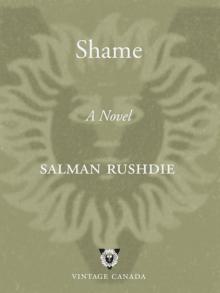 Shame
Shame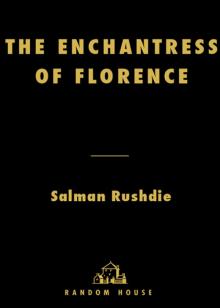 The Enchantress of Florence
The Enchantress of Florence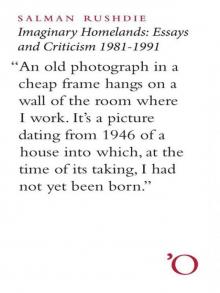 Imaginary Homelands: Essays and Criticism 1981-1991
Imaginary Homelands: Essays and Criticism 1981-1991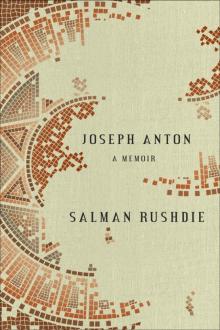 Joseph Anton: A Memoir
Joseph Anton: A Memoir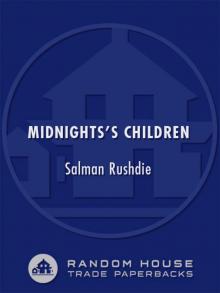 Midnight's Children
Midnight's Children East, West: Stories
East, West: Stories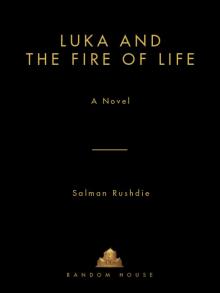 Luka and the Fire of Life
Luka and the Fire of Life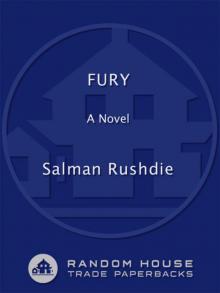 Fury Fury Fury
Fury Fury Fury Haroun and the Sea of Stories
Haroun and the Sea of Stories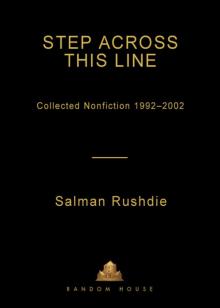 Step Across This Line: Collected Nonfiction 1992-2002
Step Across This Line: Collected Nonfiction 1992-2002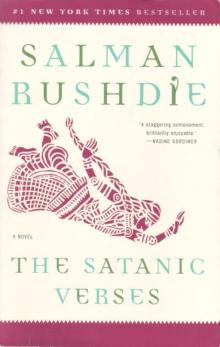 The Satanic Verses
The Satanic Verses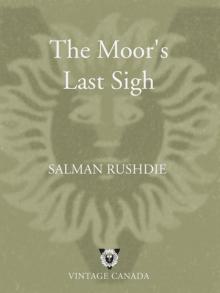 The Moor's Last Sigh
The Moor's Last Sigh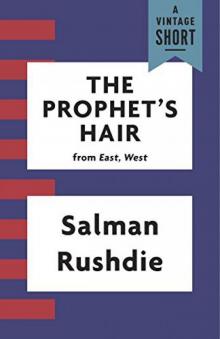 The Prophet's Hair
The Prophet's Hair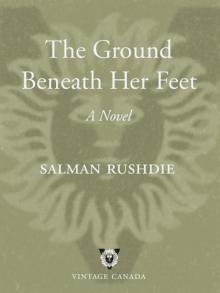 The Ground Beneath Her Feet
The Ground Beneath Her Feet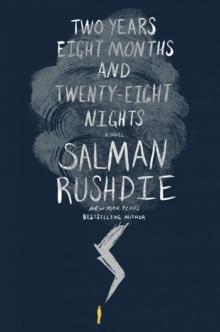 Two Years Eight Months and Twenty-Eight Nights
Two Years Eight Months and Twenty-Eight Nights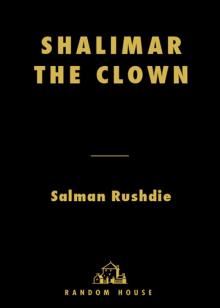 Shalimar the Clown
Shalimar the Clown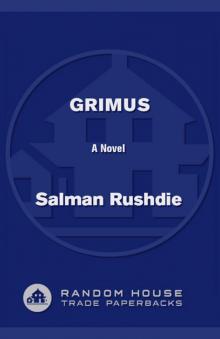 Grimus
Grimus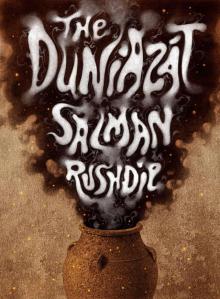 The Duniazát
The Duniazát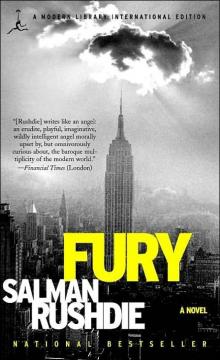 Fury
Fury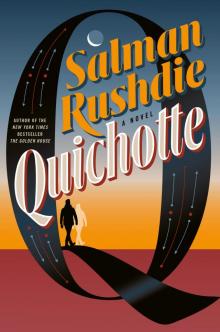 Quichotte
Quichotte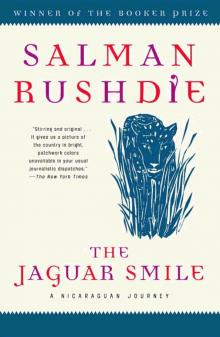 The Jaguar Smile
The Jaguar Smile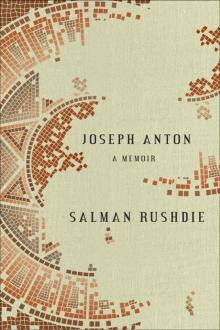 Joseph Anton
Joseph Anton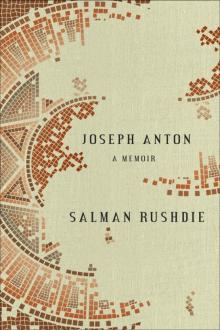 Joseph Anton: A Memoir: A Memoir
Joseph Anton: A Memoir: A Memoir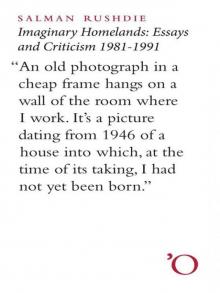 Imaginary Homelands
Imaginary Homelands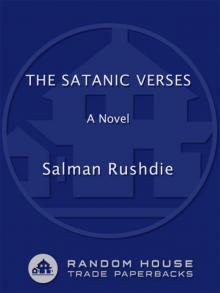 The Satanic Verses: A Novel
The Satanic Verses: A Novel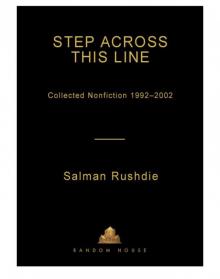 Step Across This Line
Step Across This Line East, West
East, West